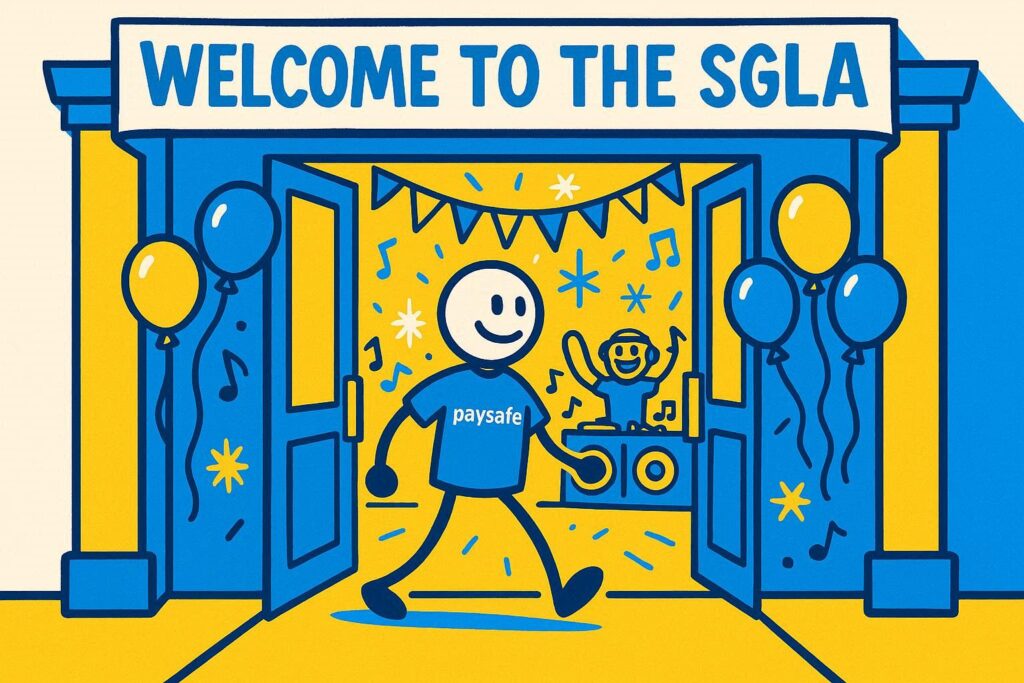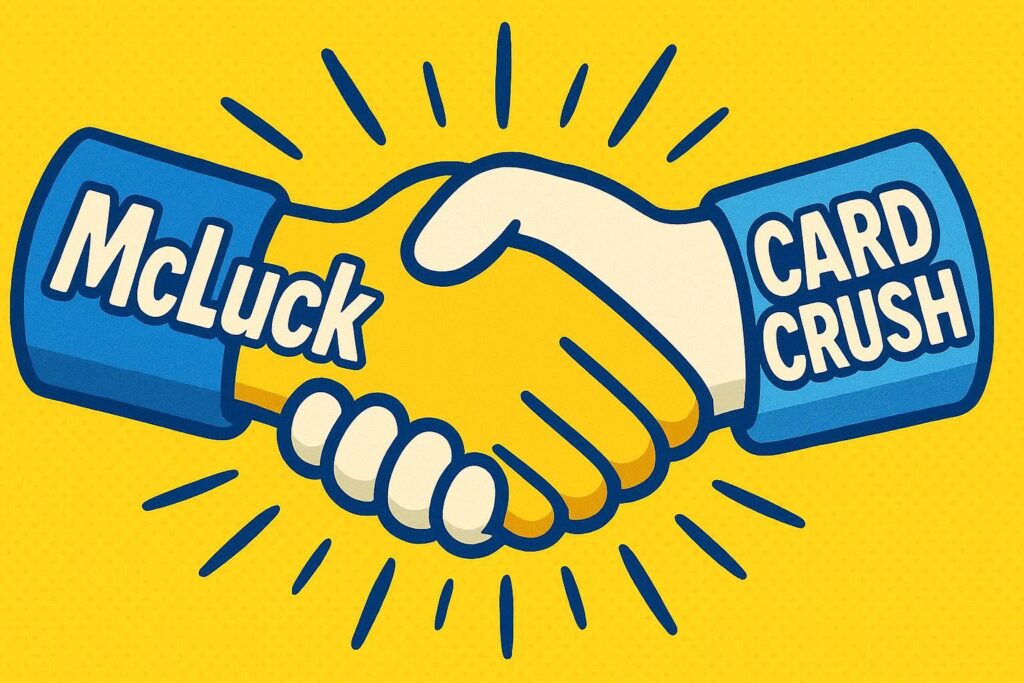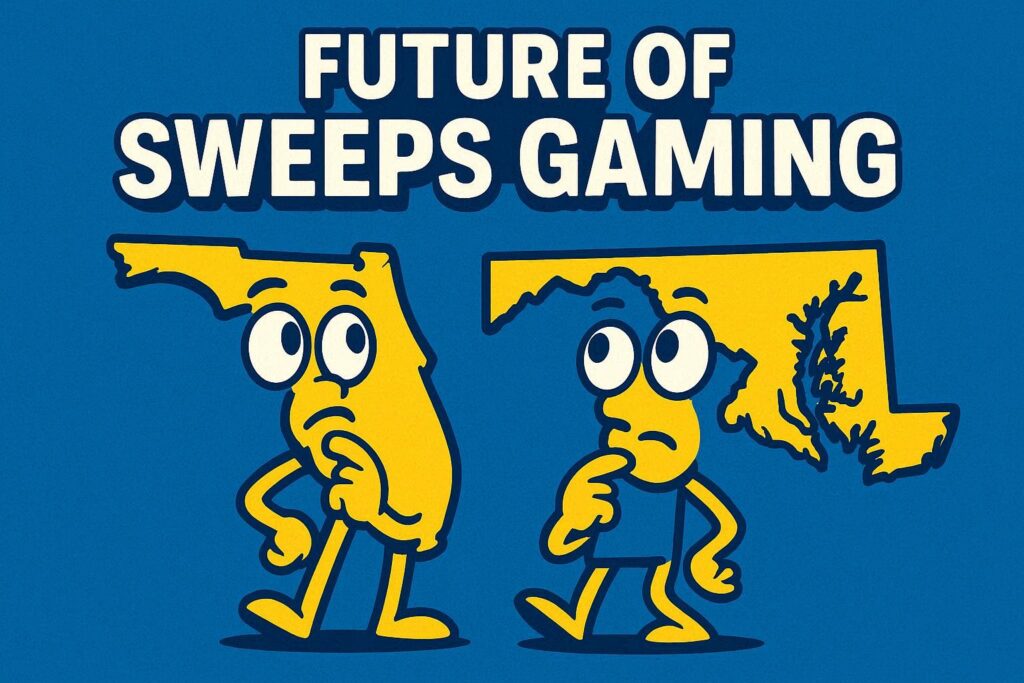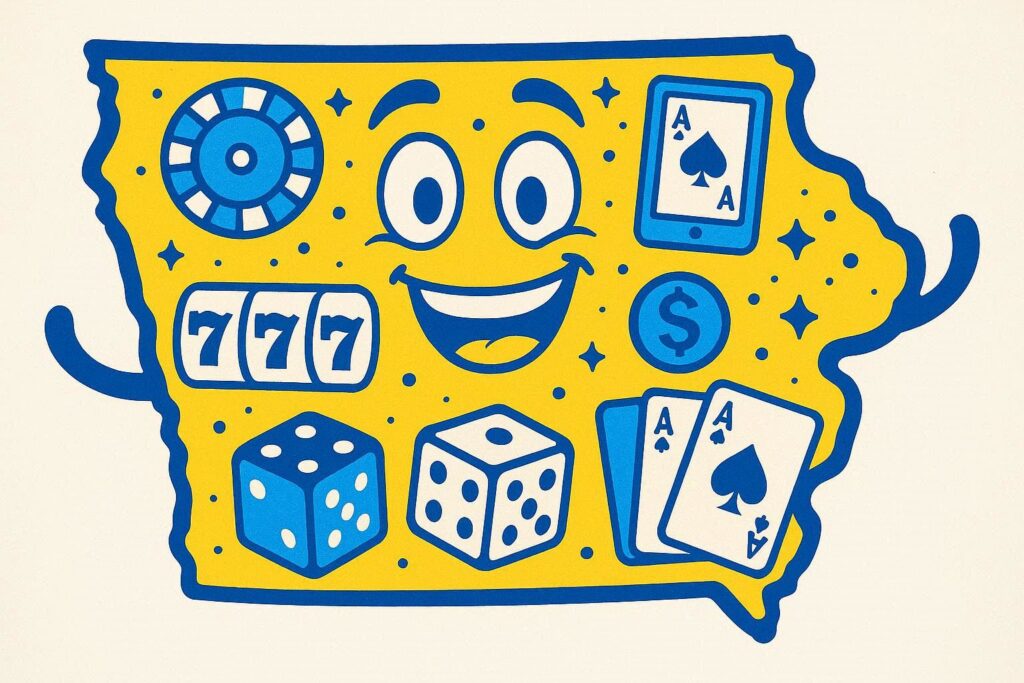California cardrooms may not be getting the reassurance they need in order to support Assembly Bill 831, which would ban online sweepstakes casinos in California.
Three cities with popular cardrooms — Gardena, Inglewood, and Colma — have officially opposed AB831, according to the bill’s analysis filed on Aug. 29 for its full Senate vote. Listed under opposition is also the California Cities Gaming Authority, a cardroom advocacy group that represents cities including the three listed above, but also and Bell. (San Jose was formerly a member, but a city official told Sweepsy it is no longer a part of the CCGA.)
Hustler Casino and Larry Flynt’s Lucky Lady Casino are in Gardena; Hollywood Park Casino is in Inglewood; Lucky Chances Casino is in Colma; and Parkwest Bicycle Casino is in Bell Gardens, right next to Bell.
Of the 80 cardroom licenses in California, by number of gaming tables, here’s how those cardrooms rank:
- Parkwest Bicycle Casino (250) – No. 3
- Huslter Casino (91) – No. 4
- Hollywood Park Casino (75) – No. 5
- Lucky Chances Casino (60) – No. 6
- Larry Flynt’s Lucky Lady Casino (50) – Tied for No. 9
Cardrooms and California’s tribes are traditionally rivals, as the tribes believe the modified gambling options available at cardrooms violate tribal exclusivity to gambling provided in the tribes’ gaming compacts with the state. Thanks to Senate Bill 549 passing in 2024, various tribes are now suing cardrooms for that exact thing.
Cardrooms want a carveout exempting them from any potential criminalization caused by AB831. At face value, it may seem nothing in AB831 directly applies to cardrooms. However, given the history between cardrooms and tribes, they’re seeking assurances that this bill won’t be used somehow against them in the future.
‘At this point we’re confused’
This marks the first time cities with cardrooms or any cardroom advocacy organization has formally opposed AB831, indicating that what began as hopeful aspirations to reach agreements in the amendment process have not gone as hoped for — at least for certain cardrooms.
During AB831’s initial Senate hearing, before the Governmental Organization Committee, things started on a tense note. A cardroom representative, whose mic was not turned on when he identified himself, expressed frustration that there wasn’t a carveout for cardrooms already baked into the legislation.
“We have had conversations with the assemblymember,” the representative said, referencing Assemblymember Avelino Valencia, the author of AB831. “We need to have cardrooms exempted and I was under the understanding he was going to make a commitment to that this morning, so at this point we’re confused.”
The committee then gave Valencia the chance to respond.
“[I’m] committed to continue stakeholder conversations,” he said, “including with the cardrooms to ensure that those issues are mitigated.”
From there, public testimony suggested there was constructive dialogue between Valencia, AB831’s main bakers (California gaming tribes), and the cardrooms, which may be the only coalition in California powerful enough to hamper bills backed by tribal gaming interests.
At AB831’s Senate Public Safety Committee hearing, several cardroom representatives expressed cautious optimism.
Jarrett Blahnion, representing Lucky Chances Casino, 500 Club Casino, and Capitol Casino, said: “Taking no formal position, but thank you to the author and his staff for working with us on technical amendments for cardrooms.”
Next up was Brian Lundgren, representing Communities for California Cardrooms, the state’s largest cardroom advocacy organization.
“Thank you to the author for the intent of this bill,” Lundgren said. “While not supportive of it, we are working with the author’s office on technical amendments and we appreciate that.”
And then came Holly Fraumeni De Jesus, representing Parkwest Casinos.
“Just echoing the comments of my colleagues … and looking forward to seeing those amendments in Appropriations,” she said.
AB831 has now been presented in the Senate Appropriations Committee, and passed onto the Senate for a full vote. And as of yet, there have been no amendments or carveouts to the bill specifically addressing cardrooms.
There has been one amendment
Valencia did file an amendment to AB831 on July 16. It’s a broad amendment that perhaps was written as a catch-all to include a lot of entities, including cardrooms, but based on the formal opposition of Gardena, Inglewood, Colma, and the CCGA, it isn’t enough to at least a handful of the state’s most influential cardrooms.
The amendment made three changes to language regarding new criminalization created by the bill:
- It stripped language criminalizing any person or entity promoting a sweeps casino in California, instead only focusing on people or entities that “operate, conduct, or offer” sweepstakes casinos.
- It removed individuals from the list of those criminally liable for supporting the operation of sweeps casinos, instead limiting that list to: “entity, financial institution, payment processor, geolocation provider, gaming content supplier, platform provider, or media affiliate.”
- It added the word “knowingly” to the language regarding criminalizing the above-listed entities for supporting sweeps casinos — “to knowingly support directly or indirectly the operation, conduct, or promotion of an online sweepstakes game within this state.” Before, the language just said “to support” these activities.
The goal of the first two changes is clear: Anybody who endorses sweeps casinos in marketing and promotional campaigns, including celebrities like Drake (Stake.us), Paris Hilton (WOW Vegas), and Ryan Seacrest (Chumba Casino), won’t get in trouble.
The “knowingly” change is much more vague and unclear regarding its exact impact — especially if and how this would apply to cardrooms.
“Adding the word ‘knowingly’ into AB831 will constrict the net on the face of it, however, not as much as many would like,” Marcus Denning, Senior Lawyer at MK Law, told Sweepsy. “Although it adds a mental element to the offense of giving services to violators of the statute, the mental element does not require certainty.
“California courts have been guided by a standard whereby deliberate ignorance or willful blindness can be used to prove that one is acting knowingly. You cannot just say you did not know. Even when you were strongly suspecting and you took actions to prevent verification of that suspicion, the courts still would consider that knowledge.”
Are cardrooms important for AB831?
Cardrooms are gambling halls where customers can play poker and modified table games where they’re technically playing against each other, not the house. (That’s how they can offer gambling off-reservation.)
Some are massive facilities that contribute huge amounts of revenue for local cities. Four of the five largest card rooms in the United States are in California, and the cities where these card rooms are located — San Jose and several in Los Angeles County are particularly influential — are defensive of anything threatening the legality of cardrooms.
A 2019 report from John Dunham & Associates, commissioned by the California Gaming Association, found California cardrooms contributed $5.6 billion to the state economy and directly created 32,425 local jobs. Further, the report determined California cardrooms generate about $500 million in tax revenue overall, including $398.8 million for the state and another $100.9 million for local governments through gaming taxes.
So, if cardrooms are against a tribal-backed bill, they may have lawmakers from those cities and counties on their side. And with AB831 now facing a full vote in the Senate (and, if it passes there, in the Assembly), it needs all the votes it can get.








